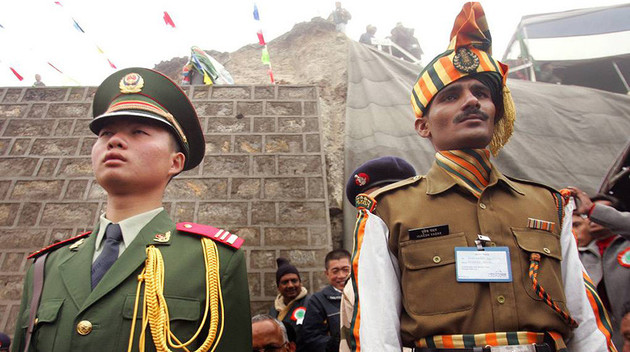Deadly violence along the Indian-Chinese border this week supercharged bilateral tensions and threatened to drag the giant nuclear-armed neighbors into a nervous standoff amid the Himalayans, Newsweek writes in the article China, India Exchange Threats After Border Violence Kills Soldiers. The deaths of at least 20 Indian troops—including a colonel—and an as-yet unknown number of Chinese soldiers were the first along the border in decades.
The violence occurred at the loose Line of Actual Control in place since the end of the 1962 Sino-Indian War in the northern Indian state of Ladakh, where overlapping territorial claims mean regular confrontations. But the scale and brutality of Monday's fighting was unusual. Tensions have been high since April, when thousands of Chinese soldiers crossed the LoC and set up positions in disputed territory, seemingly to frustrate Indian construction projects that would improve its military preparedness at remote bases along the mountainous border. According to The Guardian, some 600 troops—unarmed per tradition to avoid escalation—battled through the night with fists, stones and other makeshift weapons. Most of the Indians killed fell from the mountainous terrain in freezing conditions, unnamed sources in New Delhi told the newspaper.
As both sides take stock, leaders and officials are seeking to avoid further escalation while denying blame for the violence. Chinese and Indian officials have also warned that further aggression is unacceptable and may prompt retaliation. Prime Minister Narendra Modi broke his silence on the matter on Wednesday, having been criticized in India for waiting so long to speak. In a video statement, the prime minister said: "I would like to assure the nation that the sacrifice of our jawans will not be in vain," using an Indian term referring to soldiers. "For us, the unity and sovereignty of the country is the most important. India wants peace but it is capable to give a befitting reply if instigated," Modi continued, according to the Asian News International agency.
Rahul Gandhi, the former leader of the Indian Congress Party—the main opponent of Modi's nationalist Bharatiya Janata Party—and a member of the Nehru-Gandhi political dynasty, was less diplomatic, attacking both Modi and China. "Why is the PM silent? Why is he hiding?" Gandhi asked hours before Modi's statement. "Enough is enough. We need to know what has happened. How dare China kill our soldiers? How dare they take our land?" Sonia Gandhi—Rahul's mother and now leader of the Congress—released a video statement demanding that Modi explain "how the Chinese occupied Indian territory, why 20 brave soldiers were martyred." Sonia Gandhi said Congress stands behind the government and paid tribute to the dead.
In China, Foreign Minister Wang Yi spoke to his Indian counterpart Subrahmanyam Jaishankar on the phone and stressed that Beijing would not hesitate to defend its territory, according to the state-run Global Times newspaper, which often carries the more belligerent and nationalist sentiments of the Chinese Communist Party. Wang reportedly urged Jaishankar to investigate the violence, punish those responsible, and prevent any further military provocation. Wang said India should not underestimate China's determination to protect its territory, Global Times reported.
According to the Hindustan Times, Jaishankar said India had protested to China in the "strongest terms" and said the violence was a result of Chinese "premeditated and planned" action. Foreign Ministry spokesperson Zhao Lijian also blamed India for the violence and warned New Delhi not to allow a repeat. At a daily press briefing on Wednesday, Zhao told reporters that Indian troops "crossed the line, acted illegally, provoked and attacked the Chinese, resulting in both sides engaging in serious physical conflict and injury and death," according to Reuters. India maintains that it was the Chinese troops that were trespassing on Indian territory.






